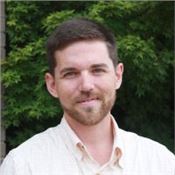|
Cotton Researcher Of The Year

Dr. Tyson Raper, University of Tennessee Extension cotton specialist has been named the 2020 Cotton Researcher of the Year at the 23rd Annual National Conservation Systems Cotton & Rice Conference, Southern Corn & Soybean Conference, Southern Precision Ag Conference and the Delta States Irrigation Conference.
Raper earned a BS in Ag Business and Economic with a minor in Agronomy and Soils from Auburn University, a MS in Agronomy from Mississippi State University and a Ph.D in Crop Physiology from the University of Arkansas.
The greatest measure of Dr. Raper reputation could be quantified when he received the Extension Cotton Specialist of the Year Award in 2019. He has also been named the Pettigrew Cotton Specialist at the University of Tennessee, and the Tom Cothren Young Physiologist of the Year.
Extension Cotton Specialists have an unfair advantage in any competition to improve the profitability of cotton production. From working with growers, they are deeply rooted in current farming practices and understand their challenges and limitations. From their professional training and collaboration with fellow University scientists, they bring the best science to address these challenges and build opportunities with Statewide and Beltwide impacts. Dr. Tyson Raper turns this advantage into a powerhouse of innovation and knowledge that advance not only the profitability of Tennessee cotton growers, but through his leadership, the profitability of cotton growers across the US.
Tyson Raper was educated by three of our best scientists, Jack Varco at MSU, Derrick Oosterhuis at Univ. of Arkansas and Randy Raper of OSU (his dad). Raper is supported by one of the strongest University Specialists teams in the US with entomology, pathology, weed science, systems agronomy, irrigation and physiology expertise. The University of Tennessee administration strongly supports Tyson with buildings, land, equipment and the freedom to address critical needs in cotton production. But the strongest support (and education) that Tyson receives is from Tennessee cotton growers. Being on the northern edge of the cotton belt, at ground zero for resistant weeds and with some of the most difficult soils to sustainably manage, these growers have learned the necessity of innovation in field and crop management and have been at the forefront of conservation tillage adoption – long before the weed control tools that sparked conservation tillage across the US. They recognize value in both Ag innovations and in people and have been Tyson’s strongest cheerleaders.
His research contributions to cotton profitability run from the immediate benefits of improving variety selection, planting cotton in high residue cover and optimizing N and K fertilizer rates. Tyson also creates tools that allow cotton growers to better time expensive inputs. He leads the Beltwide research to update the 30-year-old heat unit (DD60) calculators for modern varieties. But he also makes time for long term innovations such as robotic weeders and harvesters. He was also instrumental in evaluating soil moisture sensors and developing an improved water stress index for identifying drought tolerant cotton varieties during his PhD program.
With his intellect, leadership and dedication Dr. Tyson Raper has created a research and outreach program that has benefited cotton production profitability not just in Tennessee but across the Midwest states.
Rapers accomplishments show that he is a proficient writer, adept at new technology and is a sought after leader and speaker in the agricultural community. He has been able to garner excellent grant and company support for his program and has gained grower support not only in Tennessee but adjoining states through his in-service training efforts. Even though he has a 75 percent extension appointment, he is very active with scientific publications and funding applied research which is translated directly to growers. His extension program is second to none as shown by his record of county meetings, agent in service trainings, field days, county meetings, electronic and written extension publications and industry outreach. ∆
|
|